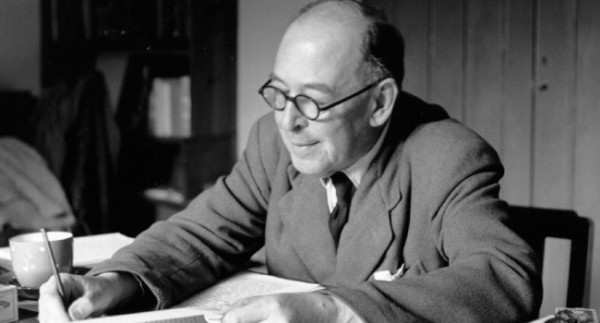Neurology and C.S. Lewis’ Argument from Desire
by Joe Heschmeyer
Filed under The Existence of God
One of the most popular arguments for God comes from C.S. Lewis' argument from desire. Peter Kreeft explains it very well here, and structures the argument in a Thomistic fashion like so:
- Every natural, innate desire in us corresponds to some real object that can satisfy that desire.
- But there exists in us a desire which nothing in time, nothing on earth, no creature can satisfy.
- Therefore there must exist something more than time, earth, and creatures, which can satisfy this desire.
- This something is what people call "God" and "life with God forever."
Here's how Lewis originally presented it:
"Creatures are not born with desires unless satisfaction for these desires exists. A baby feels hunger; well, there is such a thing as food. A duckling wants to swim; well, there is such a thing as water. Men feel sexual desire; well, there is such a thing as sex. If I find in myself a desire which no experience in this world can satisfy, the most probable explanation is that I was made for another world." (Mere Christianity, Bk. III, chap. 10, "Hope")
There are a few important caveats that must be made to this:
- The desire should be understood in the broadest of terms. That is, a man might desire sex with a woman who doesn't exist, or you might have a dream about eating a non-existent food: but women, sex, and food are all real, and these imaginary deviations relate to an existent core. Applying this to God, we have desires which are satisfied in God, but that certainly doesn't mean that whatever we imagine (or desire) God to be, He is.
- The fact that some individuals aren't aware of the desire doesn't serve as a negation. After all, there are plenty of people who consider themselves asexual. Any number of causes might explain this lack of desire - a lack of self-awareness, psychological causes (be it trauma, suppression, or fear of the desire itself). But the fact that I'm not hungry right now doesn't disprove the existence of food.
Atheists who criticize the argument here seem to misunderstand those two caveats (and come to the mystifying conclusion that C.S. Lewis was desperately trying to convince himself that God existed).
Let's plug Lewis' argument from desire into modern neuroscience. Neurologists tell us two things:
- There is a unique neurological reaction to religion which doesn't relate to the other known neurological reactions. (Critics of religions interpret this to mean that God is "all in your mind" because we're pre-programmed for religion).
- People in affluent societies tend to be less religious. (Critics of religions interpret this to mean that God is, in fact, not all in your mind, and that we're not pre-programmed from religion; instead, religion is but a delusion clung to by the ignorant and suffering).
In other words, given the question, "Is belief in God an innate neurological phenomenon?" we have two contradictory answers. Some critics say, "Yes, and this disproves God, because it means we're imagining Him." Others say,"No, and this disproves God, because it means He's a social construct." In other words, both Darwinism and Social Darwinism are responsible for the problem of God.
Lewis' argument, in contrast, explains things in a much more convincing manner:
- There is a unique neurological reaction because God is a unique desire not satisfied through the satiation of other desires (sex, money, fame, food, drink, comfort). Thus, through prayer and meditation, we can observe people getting this unique spiritual hunger fed.
- People who perpetually indulge in sex, money, fame, food, drink, comfort, often misidentify the spiritual hunger as a carnal hunger. We see this in other contexts, like when a person sometimes thinks he's hungry when he's sleepy. We often mask a hunger through the satiation of other desires - it's the reason that people rebounding from a rough breakup often turn to drugs, drink, and meaningless sex, or throw themselves into another relationship. In indulging generally, they mask the specific hunger they're trying to ignore.
So far as I can tell, this explains both the phenomenons we see quite aptly, without having to create an impossible-to-win, double-bind against the existence of God. Whereas the critics' argument presume the lack of existence of God (because it's unprovable), and sets out to explain why we miss Someone who we can't prove scientifically exists, Lewis' argument is supported by observable phenomenon, like the neurological data. Additionally, we know that people indulging in everything but God aren't getting this neurological stimulus. Whether they would like to admit it or not, the science now shows that believers are getting something which non-believers aren't. No matter how critics try to spin it, this is an argument for God, and a pretty good proof for the argument from desire.
Related Posts
Note: Our goal is to cultivate serious and respectful dialogue. While it's OK to disagree—even encouraged!—any snarky, offensive, or off-topic comments will be deleted. Before commenting please read the Commenting Rules and Tips. If you're having trouble commenting, read the Commenting Instructions.













